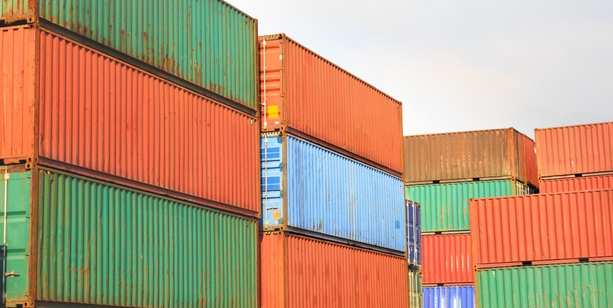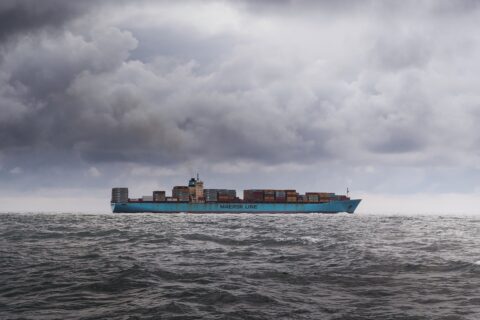
Why consolidate freight? There has never been a greater need to bring down freight prices. Shippers must contend with international competition, and customers demand record-breaking low prices for their purchases. Many shippers have been left in the cold as a result of the growth of Amazon and other large e-commerce choices.
Small and medium-sized businesses (SMBs) may have trouble proactively monitoring their freight spend, and some may not have access to the transportation and freight forwarding services that big-box stores and large corporations do. More businesses with low volume shipments are switching to less than container (LCL) or less than truckload (LTL) shipping in an effort to decrease expenses. Poor planning and execution of the shipping strategy will significantly raise freight prices.
What are your best options for freight consolidation and deconsolidation in shipping?
What is Freight Consolidation?
Consolidating freight seems like an easy task. To benefit from less bother with shipping, smaller shipments are consolidated into larger shipments. Lowered expenses and quick transportation are the results. Consolidating shipments, however, adds a layer of complexity to the shipping process.
According to Zipline Logistics, consolidation indicates a direct requirement to expand touch points for the original shipments. As with every shipment, more touch points increase risk. Contrarily, when done correctly during the transportation process, freight consolidation decreases the number of possible contact points a shipment may have, hence lowering risk.
Yes. It sounds complicated. How is it possible for consolidation to both raise and lower risk?
Let’s return to comprehending what freight consolidation entails in order to respond to that query.
Freight can be bundled into larger shipments starting with parcel packages, such as producing LCL and LTL shipments and Full Truckload (FT) or Full Container (FC) shipments. Creating LCL & LTL shipments is simple for businesses delivering numerous quantities of similar goods to a single location. However, there are some restrictions on cost savings and the total length of the shipping voyage with less than container or truckload shipment.
Freight consolidation, a service provided by freight forwarders like Freight Hub, can efficiently combine numerous shipments from one or more shippers into a larger shipment, even though shipping via LTL and LCL has its advantages. The source of the loads is the key distinction between a freight consolidation service and, for example, an LTL shipment from an internal dock.
How Does Consolidated Shipping Help Shippers?
By combining the shipments, carriers can transport goods from one sort of smaller-sized load to another larger one, such as combining small packages into LTL shipments and LTL shipments into full truckloads (FTs), which lowers the cost of freight shipping. Although cost reductions are the primary advantage of freight consolidation, there are other advantages as well, such as:
Reduced transport expenses: By integrating small package freight into LTL shipments and full truckload shipments, a freight forwarder may be able to benefit from historically lower transport prices among the top carriers. In the end, freight that is shipped in greater quantities typically costs less. In other words, shippers are given the opportunity to take advantage of lower rates provided by carriers by leveraging the purchasing power of other shippers.
Greater ties between carriers and shippers: Carriers can lower their overhead costs by consolidating their freight. When shippers can lower the costs of their carrier partners, the carrier will unavoidably view the shipper as a “Shipper of Choice,” increasing the attractiveness of the shipper’s freight and increasing the likelihood that capacity will be found during periods of reduced available capacity. Consolidating freight shipping minimizes the number of carrier-shipper interactions while providing a carrier with the benefit of cheaper transportation costs, which increases the carrier’s potential profit. Stronger relationships between carriers and shippers are also a result of less trouble with freight scheduling and loading.
Freight Deconsolidation
A Quick Review of the Definition of Deconsolidation
According to National Retail Systems, freight consolidation is a great approach to support manufacturers and retailers in bringing distribution closer to consumer demand while also reducing total freight expenditure. Consolidation of freight necessitates its eventual deconsolidation, similar to a fundamental tenet of physics. Deconsolidation raises a company’s risk, although that risk isn’t always dangerous.
The notion of deconsolidation suggests that multisite, multi-piece shipments made from bigger, consolidated shipments are fundamentally necessary. This presents an opportunity for these businesses to increase delivery without sharply increasing shipping expenses.
Why is the deconsolidation of freight essential to success?
Businesses in the e-commerce industry must successfully deconsolidate their freight if they are to succeed. The objectives of effectiveness, productivity, and cost effectiveness are the same as those of freight consolidation by nature.
The main reasons shippers seek to consolidate freight are to fulfill more orders and to increase inventory availability during busy shopping seasons. Through freight consolidation, service providers can reduce the expenses associated with freight forwarding. Therefore, freight deconsolidation, the opposite process, helps shippers as a strategy to keep freight prices in check.
ProConnect Integrated Logistics – Your Warehousing & Freight Forwarding Partner
A third-party logistics firm can help shippers mitigate a variety of risks throughout the supply chain by outsourcing certain logistics functions. By partnering with a 3PL, a shipper can free up time to concentrate on his or her core competencies without suffering from the ever-shifting logistics landscape.
If you are looking for a partner to take care of all your logistics hassles, talk to us.





 APP DOWNLOAD
APP DOWNLOAD